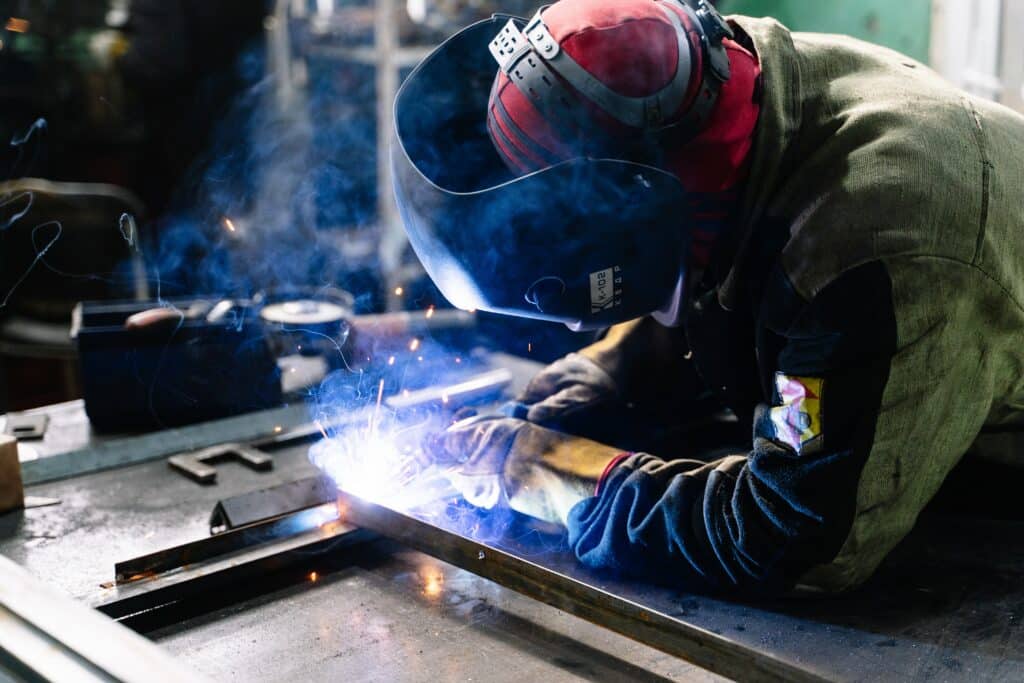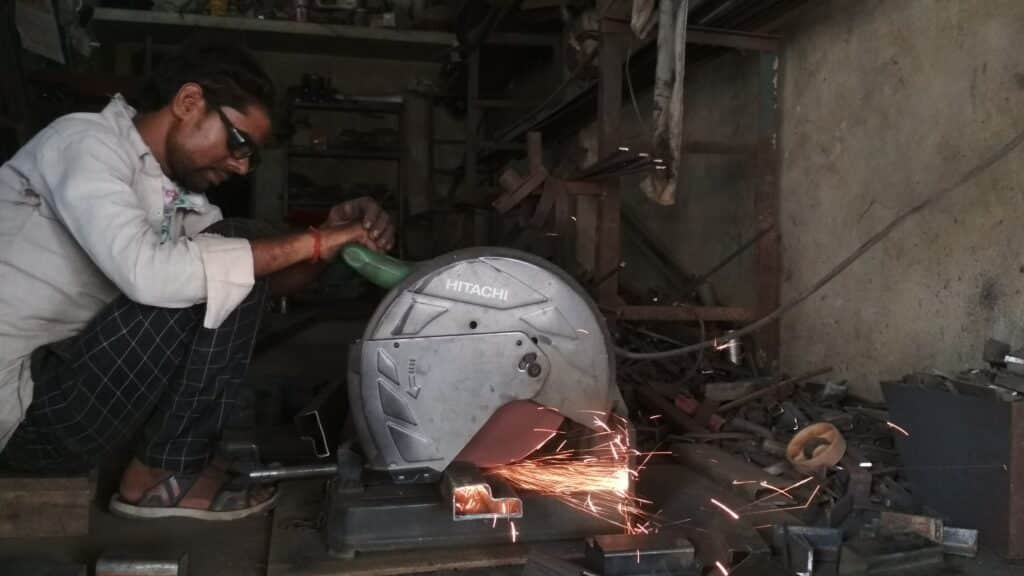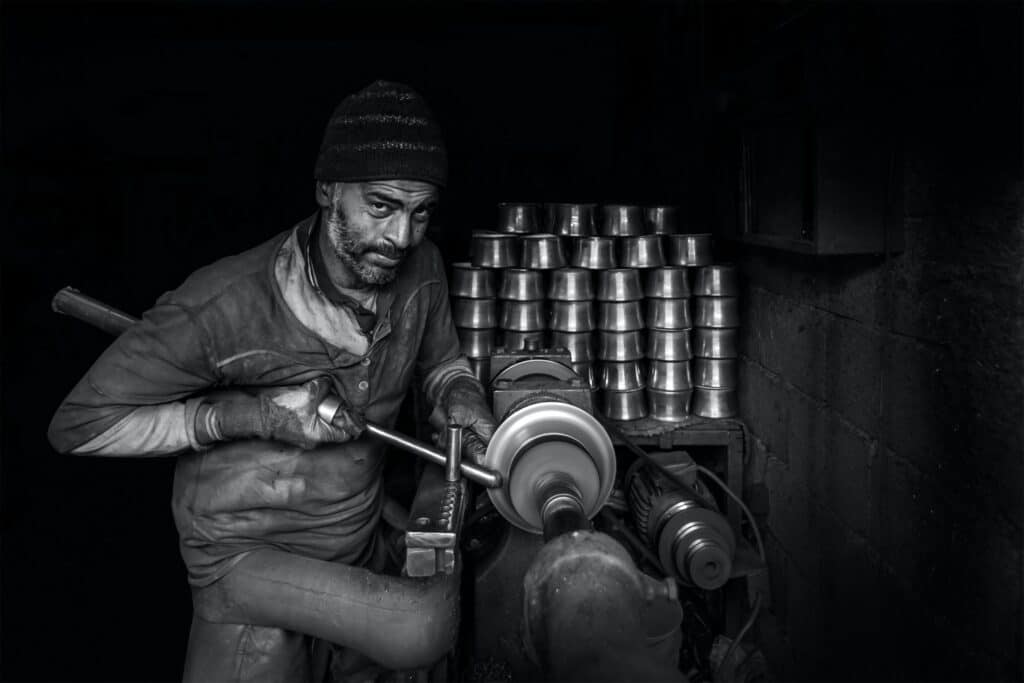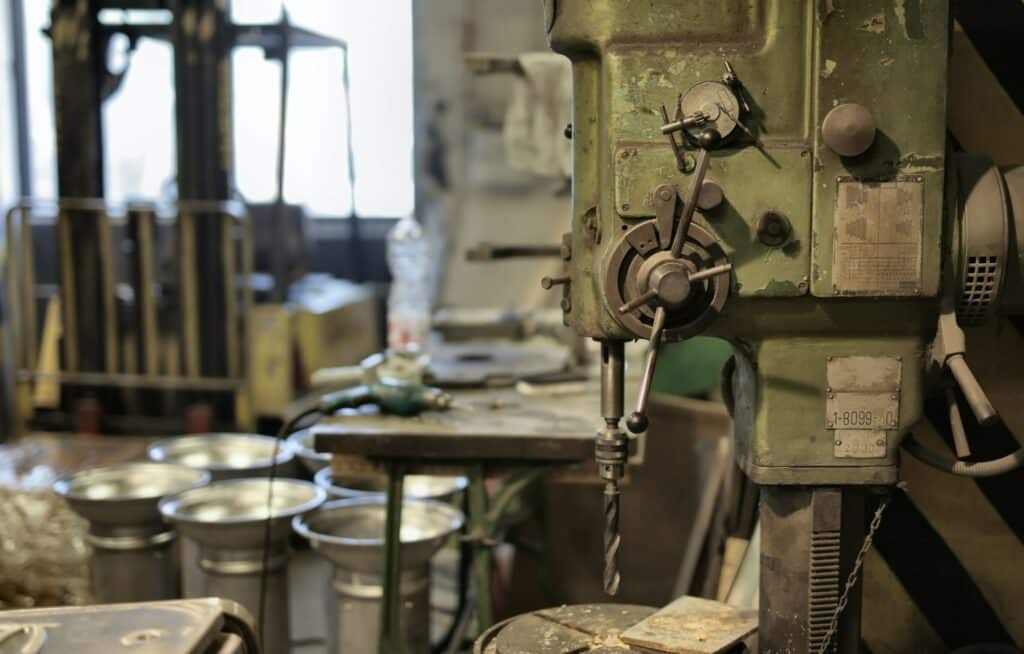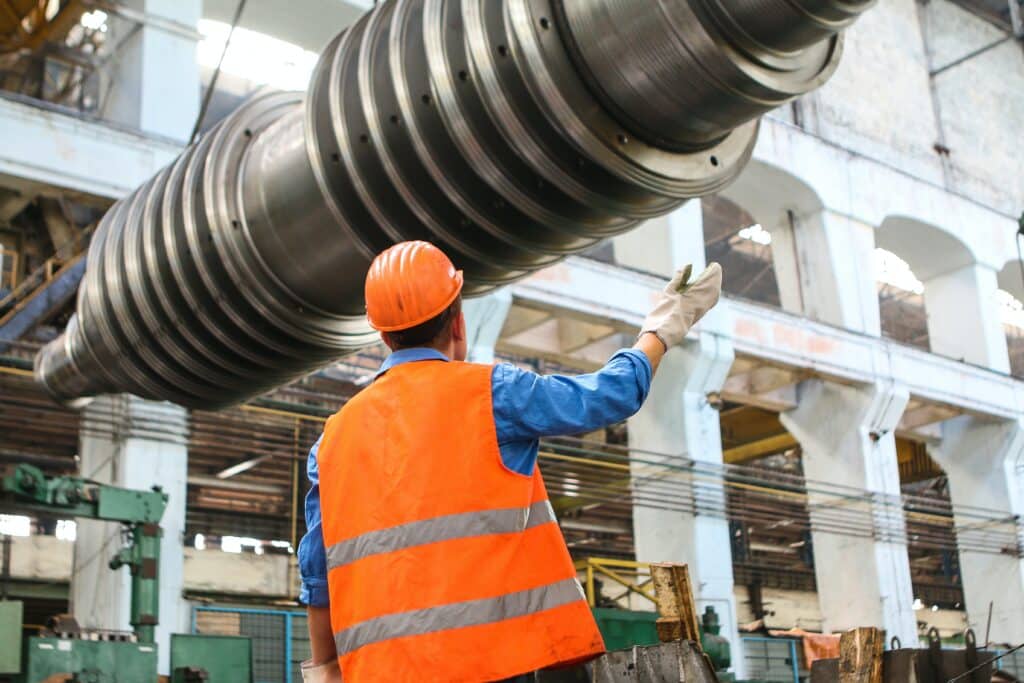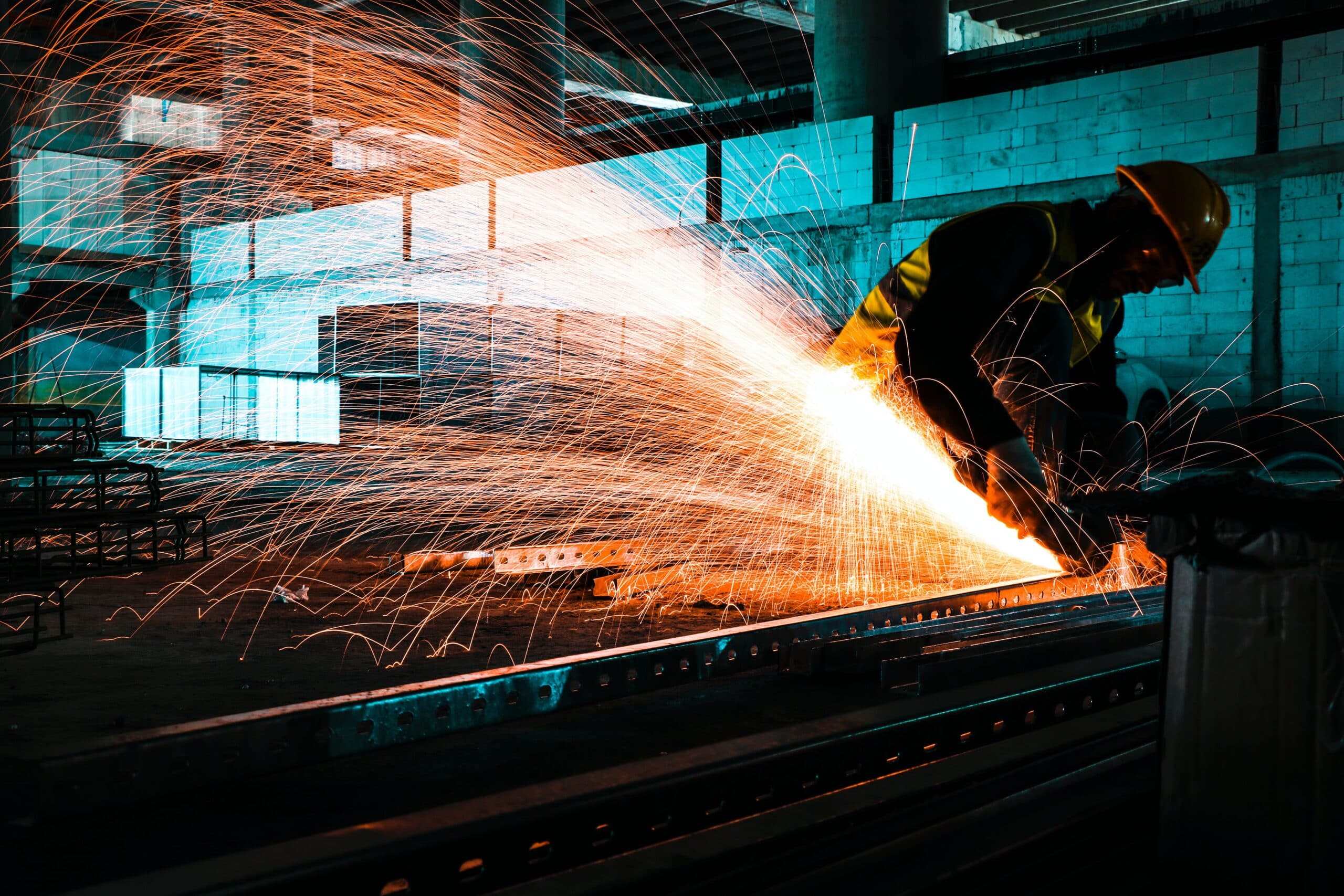
Is Metal Fabrication a Good Career Path?
Much like its products, techniques, and technologies, the metal fabrication industry provides many career opportunities to those interested, especially those coming from the field of engineering. It also provides career opportunities for those with a high school diploma. It is also considered an essential industry, as many products and structures require metal fabrication companies and professionals.
Metal fabrication is the process of shaping, cutting, and joining metal materials to create a variety of products that are used in construction, cars, and manufacturing. The North American Industry Classification System lists the important fabricated metal processes: forging, stamping, bending, forming, and machining, all of which are parts in the creation of metal components, containers, and machinery, which makes it a crucial field for the global economy.
Table of Contents
Best Jobs in the Metal Fabrication Field
To ensure quality and safety, metal fabrication companies require many different types of professionals to process metal and turn it into usable products. Most of the jobs are reasonably very physical in nature, which also makes the metal fabrication field a viable option for those looking to work in an industry with diverse job options.
Welder
One of the most common professions in the metal fabrication industry is that of the welder, a professional responsible for welding or putting metal parts together. Various technologies and techniques are used to weld materials.
In the United States, welders may be required to acquire certification from the American Welding Society, which involves a written exam and practical tests. A bachelor’s degree is usually not required for this job; on-the-job training or apprenticeships mark the beginning for the career path for most welders.
Fabricator
Welders work closely with fabricators in the production process. Fabricators are responsible for the cutting, shaping, and assembling metal parts. They usually use saws, drills, and other equipment to make this possible.
Like welders, fabricators usually do not need bachelor’s degrees; however, they need to be more skilled or trained in metalworking, as well as able to read or interpret blueprints for production. Fabrication businesses that seek to become certified fabricators go through the American Institute of Steel Construction’s (AISC) Certification Program.
Machinist
Another critical role in the metal fabrication process is the machinist, an operator for equipment that shapes metal parts with precision, such as milling machines and grinders. Machinists set up a variety of computer-controlled and mechanically controlled equipment, such as a manual and CNC machinery. CNC machines control cutting tool speed to create a part or a product.
Like welders and fabricators, machinists are not required to have a bachelor’s degree to begin their career in the field. However, some companies require prior experience and knowledge with the tools and computers used for fabrication. This can be acquired through training and apprenticeships, on top of certifications from organizations such as the National Institute for Metalworking Skills.
Quality Control Inspector
Efficiency and quality in the metal fabrication process go hand in hand. To secure the quality of the product, protect the integrity of the company, and ensure that the plant or factory is working within all quality standards as dictated by the state, quality control inspectors are responsible for assessing products and identifying any issues that it may have. They also regularly test products for strength and durability.
Quality Control Inspectors usually start with a bachelor’s degree, but get certifications from the American Society for Quality (ASQ), or from other learning institutes that specialize in quality assurance, depending on their field. QA certifications range from test engineers, software quality analysts, to associate in software testing, and more.
Engineer
Engineers are the brain of metal fabrication businesses. They design products and create blueprints using various software. Beyond design, some roles can range from overseeing production processes and testing, to ensuring that products meet both quality and client standards. For specialized or customized fabrication products, engineers also collaborate with clients and other fabrication professionals to bring ideas and requirements to life.
Engineers in the metal fabrication industry usually get a degree in mechanical engineering or related courses. However, a licensed engineer or a professional engineer (PE) in the US has more career and promotion opportunities as they are certified to submit and approve designs for both government and private clients. They must also continuously prove their competency and skills with training and other educational requirements depending on their fields.
Why You Should Get a Job in Metal Fabrication
Opportunities and compensation in the metal fabrication industry depend on the individual’s level of experience, skills, and location. Annual salary begins at $30,000 and can go as high as $130,000, depending on their position or tenure. While the starting salary may be on the lower end, consistency in opportunities may be enticing for those who seek job security. These professions also have the advantage to transfer to similar positions within the manufacturing industry.
Opportunities and Compensation
Welders, fabricators, machinists, and quality control inspectors usually begin with an annual salary of $30,000 to $32,000, with an average hourly rate of $24.93 as of March 2023. Over time, their average compensation can go up to $42,000 to $45,000 yearly, and up to $70,000 for higher or supervisorial positions.
Engineers, on the other hand, can expect a beginning salary of $60,000 a year, which can go up to $130,000 with time and experience. Company size and specialization also affect compensation in this field.
Outlook
As previously stated, the metal fabrication industry is essential to many other industries in the economy, especially in the manufacturing, aerospace, and automotive industry. Other factors that affect the outlook of the industry include global demand, new technologies, labor shortage, and environmental regulations.
While the industry can expect consistent demand for fabricated products and materials, new technologies both help speed up the manufacturing process and reduce manpower requirements at the same time. However, the industry is actually facing a shortage of skilled labor; this may be seen as an opportunity for those who are interested to enter the industry and those who already have the skills and certifications to improve their compensation.
The US Bureau of Labor Statistics (BLS) projects a 2% growth in the employment for welders, cutters, and similar metal fabrication jobs, while a 6% decline is projected for assemblers and fabricators in the next ten years.
Environmental regulations are also slowly but surely creating an impact on the metal fabrication process. Companies or factories are encouraged or mandated, to design operations that will reduce emissions and manage waste properly. The adoption of more sustainable practices will soon become the norm, as the threat of climate change has pushed legislators and more industries into action.
Forging Your Career
The metal fabrication industry is looking for more skilled workers in the coming years. For those who are looking to start working after high school, the industry is more than prepared to take in hardworking trainees willing to learn the ropes. Beginners can take advantage of the shortage of skilled laborers to learn about the field and see if this is the right fit for them.
While it may be physically demanding, a job in the metal fabrication industry offers job security and steady compensation. There is definitely a good career path in metal fabrication, and while external factors help predict the future of the industry, one’s determination to learn and adapt will weigh in more in their own journeys.
Sarah is an accomplished educator, researcher and author in the field of testing and assessment. She has worked with various educational institutions and organisations to develop innovative evaluation methods and enhance student learning. Sarah has published numerous articles and books on assessment and learning. Her passion for promoting equity and fairness in the education system fuels her commitment to sharing insights and best practices with educators and policymakers around the world.

